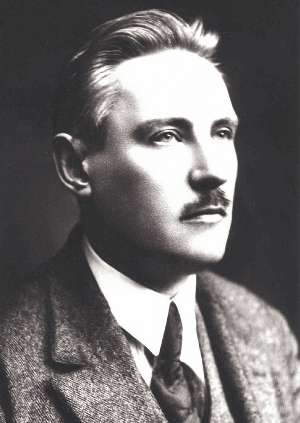
Leonid Sabaneev
RU
Composer of Classical
A.k.a. Леонид Леонидович Сабанеев [Leonid Leonidovich Sabaneyev]
Leonid Sabaneev [preferable & more common form is 'Sabaneyev'] (1881-1968) was a Russian composer, musicologist, music critic & scientist. Son of a prominent naturalist & hunting/fishing expert, he studied mathematics, physics & natural sciences at the Moscow University while additionally attending historical/philological courses. Also, he was able to receive a high-class musical education, with some of the best teachers around (e.g. Nikolai Rimsky-Korsakov, among others). By 1920s he became a famous – if rather scandalous & (self-)contradictory - music critic; as well as a music theorist, both highly innovative & inconsistent. A colourful & eccentric person, he was a close friend of Alexander Scriabine & a good acquaintance of many significant (musical or not) figures of the era, impressions of which relations later finding themselves in print in his highly acclaimed memoirs. However, almost throughout his life, regularly though not exactly prolifically, he has been writing his own music – beginning at the turn of the 20th century & ending (obviously/mostly) somewhere in 1940s. He finished orchestration score for a grandiose oratorio 'The Revelation of St. John' (aka simply 'Apocalypse'), high-demanding & time-devouring on the author's part, in 1940; still, according to reports, he continued working at the opus until his last years. The score is believed to be entombed up to this day in some US archives, unpublished. Yielding to looming shadows of dreadful changes, Sabaneyev left Russia in 1926 & relocated to Paris where he was still engaged in busy & diverse music-related activities (composed/staged a ballet; published a good book on history of Russian music; etc.). Subsequently he dwelled, for limited spells of time, in London & US. During all his time in emigration Sabaneyev never stopped working actively in many authoritative music periodicals; he also wrote music for films. He returned to France, a 'home regained' of Russian emigration, in 1933 where he died in Cap d'Antibes near Nice in October 1st, 1968. Sabaneyev's music – almost inevitably though never too heavily influenced by Scriabin & other late Romantics, was, as a matter of fact, another, divergent, going further & beyond the conventional music conceptions even of those revolutionary times; technically much complex yet unusually brittle in it’s moods, innately bearing some weird ‘romantic’ kind of darkness. It obviously hasn’t struck a chord with his contemporaries, either in Russia or in the West, & has mostly laid in obscurity for many decades, with only some broader-minded &/or rara-avis-catcher performers (like, e.g., Marc-André Hamelin) trying it out once in a while. In 2012, three daring & already well-experienced musicians has recorded two essential Sabaneyev’s 1920’s piano works - treated with all due care & exactness, rendered with inspirational sincerity, & recorded with top-notch modern quality - in Munich’s BR Studios. Accordingly, a CD (‘Piano Trios’) was issued on GENUIN label which has caused quite a stir & won much acclaim among music connoisseurs’ circles. Three years later a double CD, ‘The Complete Works for Piano Vol. 1’ came from GENUIN, containing a dozen small piano pieces performed by Michael Schäfer (5), the pianist from the previous recording; it equally & deservedly garnered most positive reviews. Sabaneyev’s one-year elder brother, Boris Sabaneyev ( Борис Сабанеев), who hasn’t survived the Russian Red Revolution, was also a musician: classical organist, organ composer & theorist, and pedagogue. On the 3-figure photo (among those linked to on this page), left to right, are: L. Sabaneyev; A. Scriabin; Tatiana Schloezer (Scriabin's Muse, as also his common-law wife).
Discography
| Title | Artist | Year | Type |
|---|---|---|---|
| Piano Trios | Leonid Sabaneev / Ilona Then-Birgh, Wen-Sinn Yang, Michael Schäfer | 2012 | Album |
